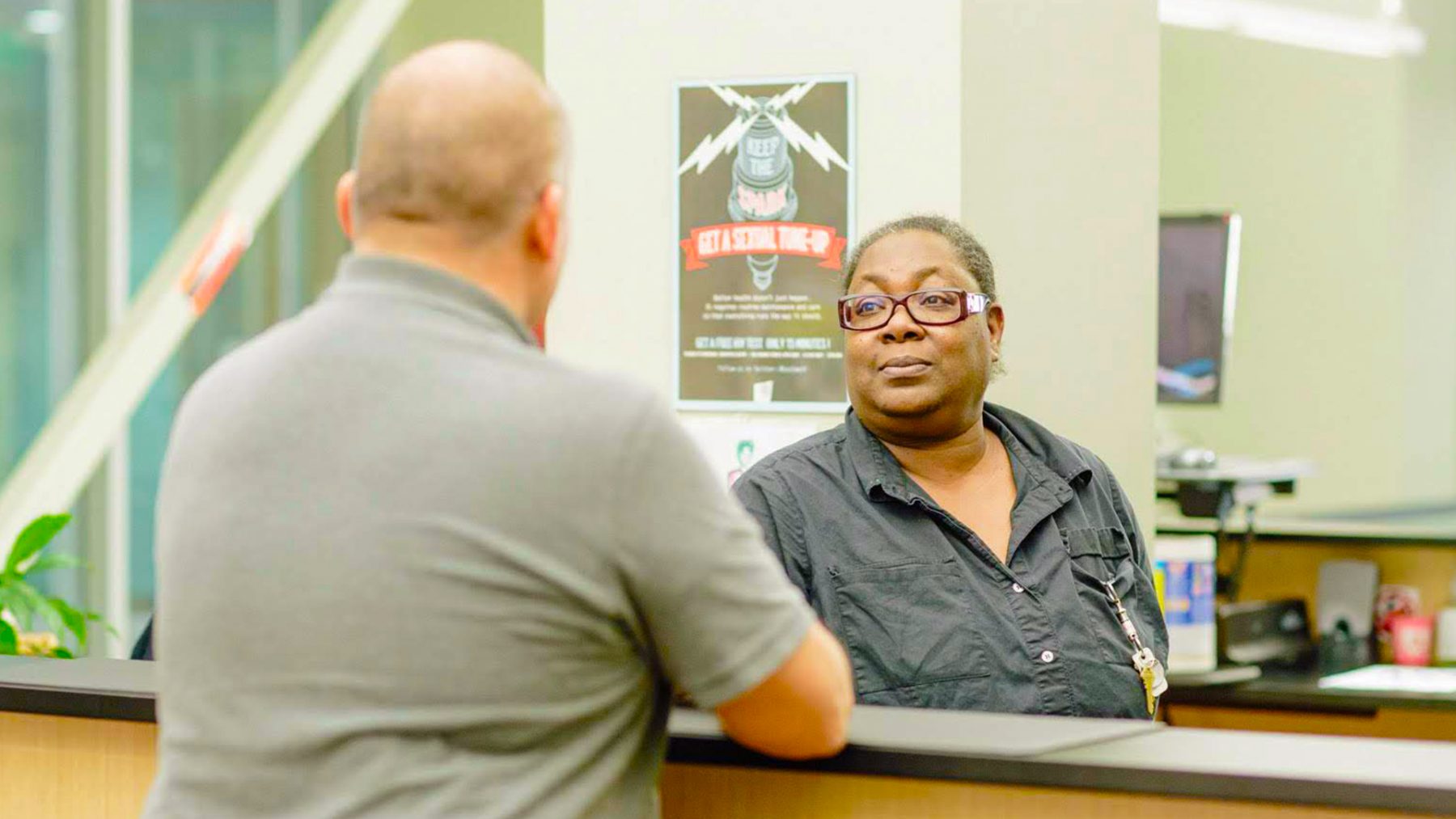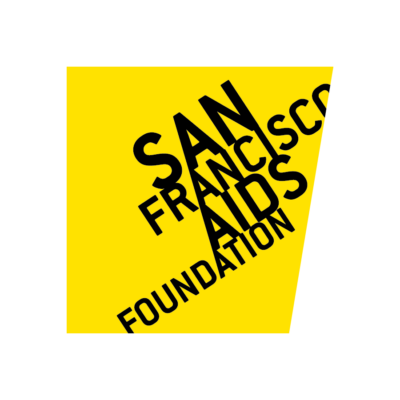We are a place of welcome for all

In a typical day, our services navigation team members welcome and assist hundreds of clients and community members, in addition to fielding questions and referrals from people who call and email. They are the first staff that people interact with when visiting our sites, and are oftentimes a critical resource for people who are struggling to navigate complicated systems of care and social services.
“Our teams do so much more than help people get to the group, counseling or clinical service they’re interested in attending,” said Ashley Fargeon, associate director of services navigation. “We build relationships with folks, do gentle and discrete assessments of what services people might need, de-escalate conflict and help people access the information they need to improve their health.”
In a given day, Greg Starr, who works at our main office on Market Street, said he fields questions and provides information to visitors and clients about an incredible range of topics—including mental health services, emergency financial assistance, housing resources, legal help, volunteering and more.
“Just today,” said Starr, “I had one person who inquired about emergency financial assistance to pay a gas bill, and someone else who called asking for programs that help people pay rent. Even if we don’t offer those services, we help make referrals to other community organizations that may be able to help.”
At Strut, services navigator Breanna Sinclaire said that a big part of welcoming people is helping to ease new clients’ anxiety and make them feel comfortable in the space.
“We’re here to listen, and to do that in a way that helps all kinds of people who all have very different needs,” she said. “It’s also important for our services navigation team to be as diverse as it is. We have coworkers who are bilingual, and I’m one of the trans services navigators here. Each of us brings something different to the table. That’s what makes our team able to relate and have rapport with the clients who visit us.”
“Finding services can be like trying to navigate a labyrinth,” said Fargeon. “I’ve been doing this work for many years which is how I know about some of the services and resources that are available. But otherwise, it can be difficult to find out where and how to get linked to the services you need. Our teams share information with each other and with clients about how to navigate those systems—so folks know what access points are, what services are available and who’s eligible for services.”
People also stop in to find safe spaces to sit and relax at all of our sites, access the computers at the main office and get coffee and snacks.
“We welcome clients who needs to get off the street for a while and find some peace in our lobby,” said Fargeon. “We have clients who come and catch a few minutes of rest here, use the restroom, pick up condoms and get a snack before heading back out again. Our goal is to be a safe and welcoming space.”
Audra Robinson, a 12-year veteran of the services navigation team, greets clients by name as they step out of the elevator and up to the service desk. She said she’s always happy to hear when people are able to improve their situation and health, and share with her when they do things like find housing or address their substance use.
“We have some people who come here as part of their daily routine,” said Starr. “We get to know them. You remember people’s stories, and follow-up with them. I think it’s really wonderful that we can be a safe haven.”
Fargeon said that although it’s always encouraging to hear when clients achieve goals, for her, a measure of success is when she feels clients’ happiness simply coming through the door. “We hear people walk though the door with a sigh of relief. That means people are happy to be here. That’s exactly what we want.”










